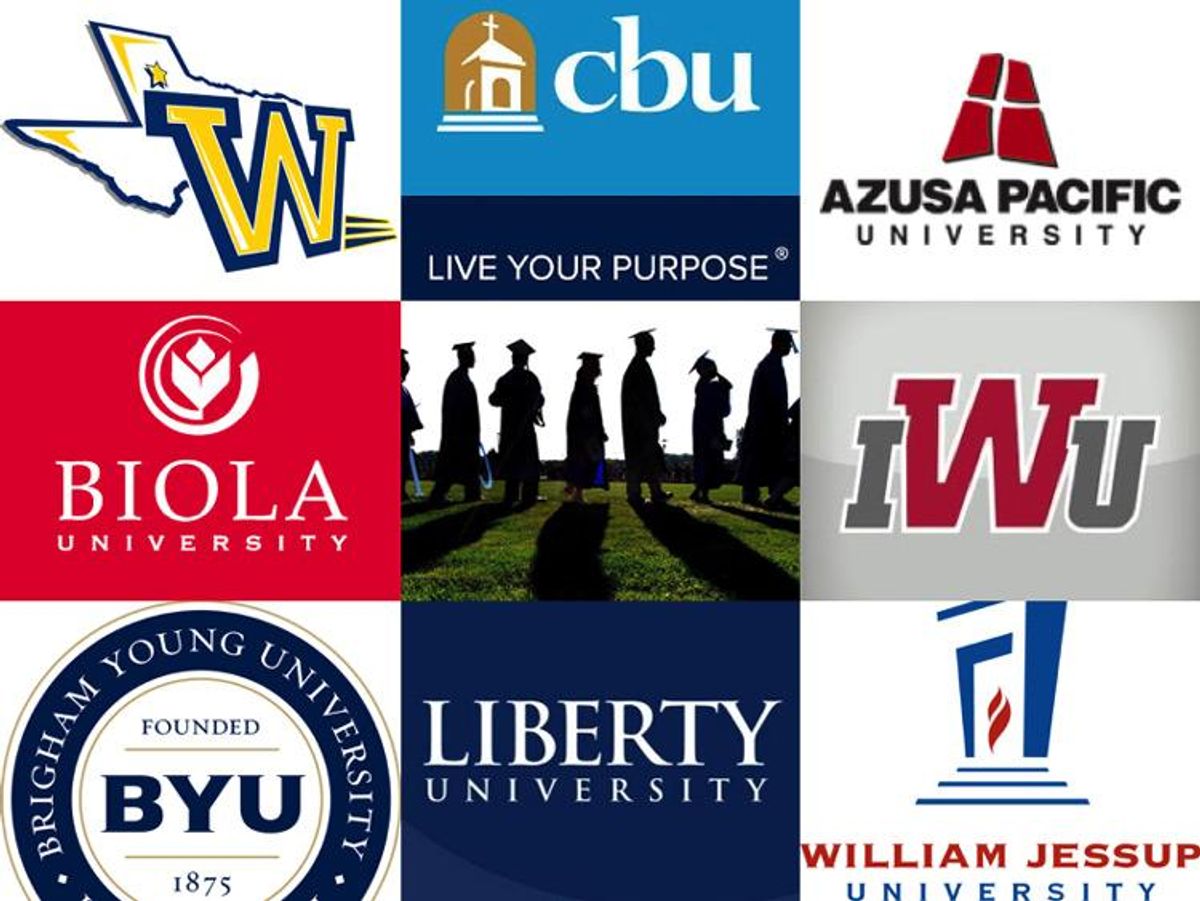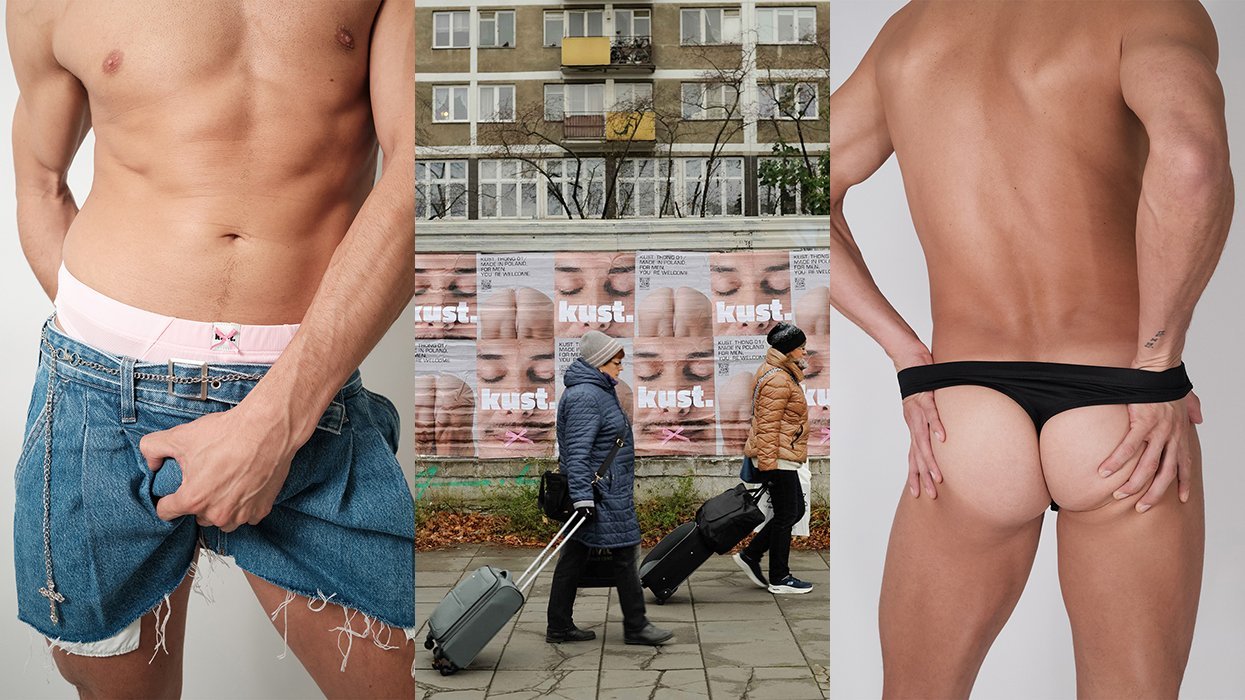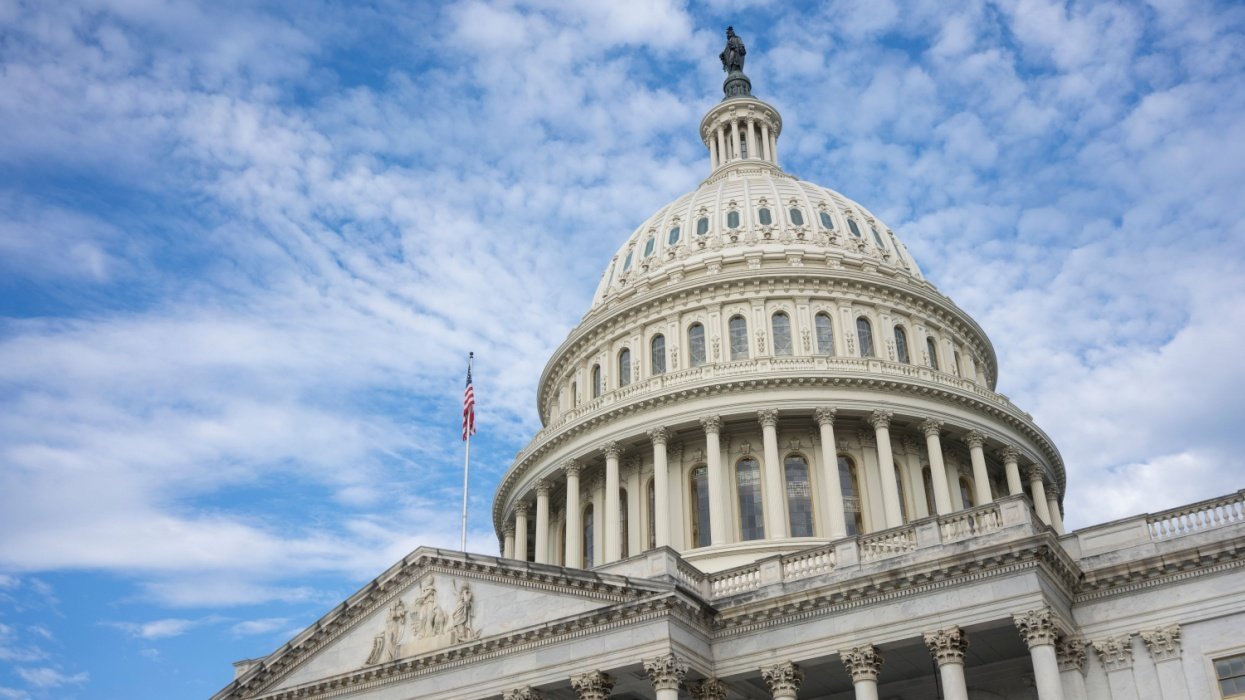Campus Pride usually highlights the best colleges for LGBT youth, as expensive as they may be. But for the first time today, the advocacy group is calling out the worst campuses for queer students.
"Most people are shocked when they learn that there are college campuses still today that openly discriminate against LGBTQ youth," said Campus Pride executive director Shane Windmeyer in a statement accompanying the Shame List released today. "It is an unspoken secret in higher education, how [schools] use religion as a tool for cowardice and discrimination."
That secret has been spoken about more openly in the past several months, as the U.S. Department of Education announced in January that it was creating a searchable database listing every U.S. college and university that requested a waiver from the LGBT-inclusive nondiscrimination protections outlined in Title IX of the Education Amendments of 1972, which prohibits discrimination on the basis of sex (including gender identity) in schools that recieve federal funds.
In order to qualify for a religious exemption to Title IX through the Department of Education, an institution must prove that following the law conflicts with specific tenets of that school's stated religious affiliation, and it must be operated by a religious institution, among other requirements. Schools must outline the specific policies that would be affected by Title IX requirements and explain how the institution's religious doctrine conflicts with the legal requirement not to discriminate based on sex or gender identity.
The Shame List features 102 schools from across the country, including postsecondary schools with historically anti-LGBT policies, along with those that requested officials exemptions from Title IX. Any school that met either or both of these requirements was placed on the list, which Campus Pride calls a roll of "the absolute worst."
Campus Pride spent six months combing over the the Department of Education's database on schools that have requested and received faith-based Title IX waivers, cross-referencing that list with additional research on schools that have policies viewed as hostile to LGBT students.
"Our job as Campus Pride is to make sure that every person in the country knows that these campuses decided that they are going to openly discriminate against LGBT young people," Windmeyer told The Advocate via phone. "This list uncovers the religion-based bigotry that is harmful and perpetuated against LGBTQ youth on these campuses."
Texas, California, Missouri, Florida, Oklahoma, and Kentucky all have more than four colleges on the Shame List, Windmeyer said, adding that the South has the highest density of schools on Campus Pride's list. The 102 schools on the list account for roughly 2 percent of the 5,000 colleges and universities in the U.S., according to the Department of Education.
The Human Rights Campaign previously shed some light on the growing number of schools requesting religious exemptions in 2015 with its "Hidden Discrimination" report. In that year, 55 colleges either applied for or were granted the exemption, effectively arguing that their faith doctrine required them to allow discrimination in admissions, housing, athletics, facilities, and rules of behavior based on gender identity or sexual orientation.
"Ultimately these campuses are dangerous for vulnerable LGBTQ youth and others," said Windmeyer. "All families and youth deserve to know this information -- and so do corporations who do business with these campuses -- from those who hire and recruit, vendors who contract food service, sell books, make donations and in any other way provides goods or services to a college or university."
Even at schools that embrace Title IX's protections, LGBT students are more likely than their straight, cisgender (nontrans) peers to be victims of sexual assault, according to recent studies. Combined with the fact that many young people are still in the process of coming out or coming to terms with their identity when they arrive on campus, college can be a particularly challenging time for LGBT students.
But on the campuses where leaders have requested religious exemptions, the simple act of coming out or daring to have sex with, date, or even marry someone of the same sex can be grounds for dismissal. Many of these campuses also contain strict policies regarding appropriate "masculine" or "feminine" attire and behavior, which essentially targets trans and gender-nonconforming students for being themselves.
For example, at Brigham Young University, the Mormon school located in Utah, The Salt Lake Tribune reported that any activity perceived as homosexual or gender-nonconforming can violate the strict honor code, leading to sanctions of LGBT students -- even if they are raped or sexually assaulted.
Two years after California's William Jessup University expelled Anthony Villarreal for being gay, the former distance runner teamed up with an out state lawmaker to introduce a bill that would require California colleges to publicly identify the stated reasoning for requesting a Title IX exemption. The bill, which passed the state Assembly and is awaiting action in the state Senate, would also allow students dismissed because of sexual orientation or gender identity to sue for damages.
See the full Shame List at Campus Pride's website.

















































































